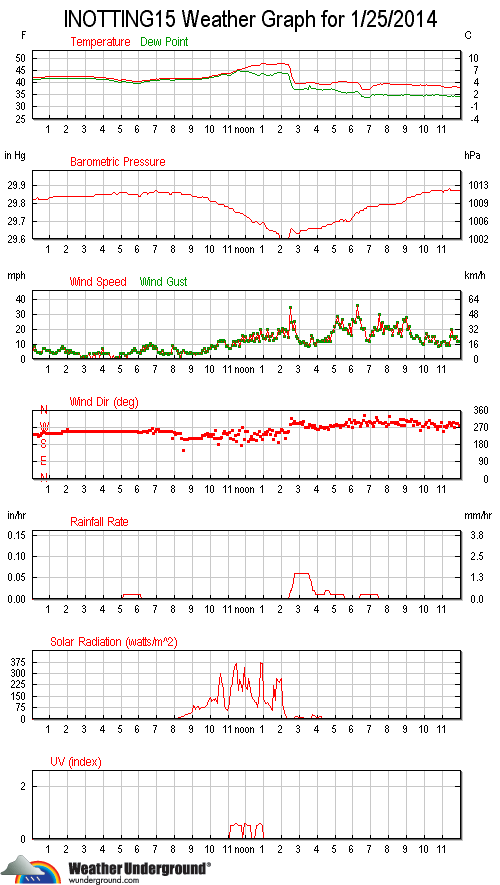After overnight rain, January 25th 2014 turned out to be a sunny, mild day until a squall line swept over the area causing high winds, heavy rain and sudden temperature changes. Locally, trees were uprooted and fences damaged when a brief, but violent thunderstorm swept in from the west. The event prompted many people to turn to the social media to question how unusual a January thunderstorm is.
In fact, although rare, thunderstorms are not uncommon in January, and can actually happen at any time of the year. Thunderstorms are caused by the rapid upward movement of warm, moist air. According to Wikipedia,
As the warm, moist air moves upward, it cools, condenses, and forms cumulonimbus clouds that can reach heights of over 20 km (12.45 miles). As the rising air reaches its dew point, water droplets and ice form and begin falling the long distance through the clouds towards the Earth’s surface. As the droplets fall, they collide with other droplets and become larger. The falling droplets create a downdraft of cold air and moisture that spreads out at the Earth’s surface, causing the strong winds commonly associated with thunderstorms, and occasionally fog.
A squall line is a line of thunderstorms that can form along or ahead of a cold front. As this cold front passed over Selston, the temperature dropped from 9.1°C at 14:24, to 4.7°C at 14:54 – a drop of 4.4°C in 30 minutes. The rainfall was brief with 1.2 millimetres falling in a 20 minute spell.
At 14:26, a wind gust of 44.1 mph was recorded by the Bracken House weather station, the highest gust ever recorded in January, and the fourth strongest gust recorded at this location.
The day’s rainfall took the month’s total over the 60 millimetre mark still well short of the record monthly rainfall of 151.8 millimetres set in April 2012. What is remarkable is that there has been precipitation recorded every day in 2014 so far, not always rainfall, but sometimes frost melt and moisture from fog and mist.
January 2014 is turning out to be a significant meteorological month.

